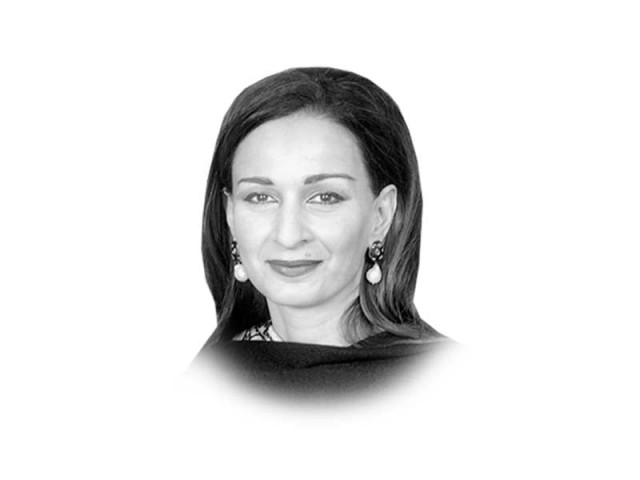Climate stewardship and parliamentary speakers
.

As Pakistan welcomes parliamentary leaders, diplomats and civil society voices for the curtain-raiser of the Inter-Parliamentary Speakers' Conference (ISC), hosted by the Senate of Pakistan in Islamabad, we set in motion a journey that is both historic and urgent. The first full session of the ISC, taking place on 11-12 November under the theme 'Peace, Security and Development', offers a rare and timely opportunity to reaffirm the power of parliamentary diplomacy, where dialogue between people's representatives, not just executive negotiations, may chart a new path for our shared global future.
Bringing to life a forum where the Speakers of many Parliaments can convene to raise crucial global issues of public importance in a dialogue that is both transparent and accountable is pivotal to democratic institutions. For doing this, I commend the founding vision of the ISC which, under the leadership of Chairman Senate Syed Yousuf Raza Gilani, is making new history as it reinvigorates the power and efficacy of parliaments. In an age when the challenges we face — climate shocks, resource conflicts, forced displacement and geopolitical tensions — spill across borders, the ISC's parliament-led model is not a symbolic gesture, but an essential step forward.
Unlike many executive-driven summits, the ISC's parliamentary core means that legislation, public accountability and citizen voices are not footnotes to the main body of work, but its central pillars. In fact, to many of us this initiative goes beyond the confines of a boilerplate conference, because it actually marks the beginning of a sustained process. As an investment in the future of public politics, the forthcoming ISC conference will provide a blueprint not only for global cooperation, but for embedding in law the commitments we make around peace, development and climate resilience.
Among the broader security challenges demanding urgent global attention, climate change looms largest. For Pakistan, the warning bells are already deafening. This year's catastrophic floods once again underscored our deep vulnerabilities to climate stress. Although we contribute less than one per cent to global greenhouse gas emissions, we have emerged as a country most egregiously at the highest risk from climate disasters. The devastation — to lives, homes, infrastructure, and crops - is not an abstraction. It is the lived reality of communities uprooted and livelihoods destroyed.
Therefore, we must frame climate change not simply as an environmental issue, but as a question of justice, human security and intergenerational equity. The Global South bears the deeper scars of a crisis largely driven and compounded by others. It pays the rents for the unchecked consumption made in colder climates. It is not wrong then for us to seek change, from being passive recipients of damage to strategic architects of response.
The ISC is precisely the platform for this shift. Through parliamentary exchange, harmonised legislation and inclusive dialogue — especially with women and youth as equal partners in action — we can translate vulnerability into agency, and agency into leadership.
Pakistan is already stepping up to this challenge, despite the huge gap in resources and needs. While facing barriers, we are still attempting to mobilise both the knowledge and the will to invest in impactful adaptation across sectors, advocating for equitable access to climate finance and pushing for an active global loss and damage architecture that reflects the principle of common but differentiated responsibility.
In Islamabad this November, parliamentary speakers from across continents will gather at the ISC platform. They will engage not merely as custodians of their respective chambers and parliaments, but as custodians of people's futures. This conference can be an opportunity to turn a page, where collective well-being takes precedence over narrow interests; where our legislation binds our promises; and where democracies step forward to lead, rather than follow. For Pakistan, the ISC is more than just an event. It is about building a permanent architecture of parliamentary diplomacy, anchored in our commitment to multilateralism, inclusive governance, and climate resilience.
The ISC inaugural conference will not just be the opening act, but it will also set the course. But the real work begins once the microphones are silent, and the declarations become statutes and systems. Let us seize this moment, because the citizens we represent cannot wait; because future generations deserve more than our good intentions; and because, in this interdependent world, the security of one is the security of all.
When parliament leads, people are heard, accountability is real, and resilience becomes a collective response. The ISC embodies this evolution. Pakistan stands ready to steward this journey, through climate frameworks, through cooperation, through hope.















COMMENTS
Comments are moderated and generally will be posted if they are on-topic and not abusive.
For more information, please see our Comments FAQ